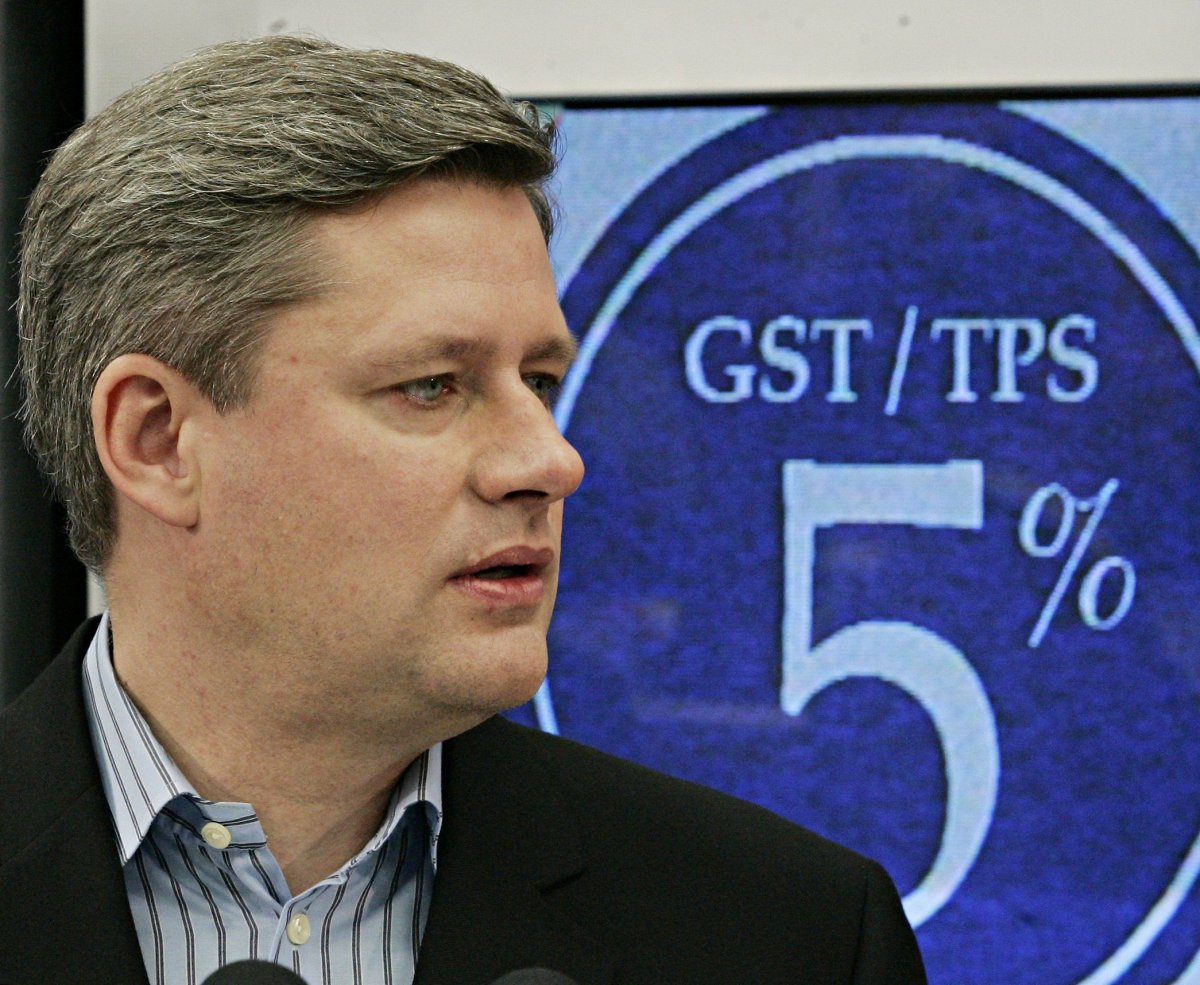Overall truthiness: False, on several technicalities.

Conservative leader Stephen Harper had to reach pretty far back in time for one attack against his opponents on Monday.
The GST cut Harper referenced was one of his campaign promises back in 2005 —the campaign that ultimately led to his first government.
Reality Check: Are political parties paying for their campaigns? It’s complicated
His promise was to cut the GST by one per cent immediately and another per cent by 2011.
Harper’s minority government followed through on that promise through two budget bills, one in 2006 and one in 2007.
To hear Harper tell it, Trudeau, Mulcair, and their respective parties voted against both cuts (assuming Harper was referencing the parties when he said “their people”).
- ‘Shock and disbelief’ after Manitoba school trustee’s Indigenous comments
- ‘Super lice’ are becoming more resistant to chemical shampoos. What to use instead
- Is home ownership only for the rich now? 80% say yes in new poll
- Invasive strep: ‘Don’t wait’ to seek care, N.S. woman warns on long road to recovery
Is that true? Not entirely.
In-Depth: The 2015 Federal Election
But it’s more complicated than it may seem.
Both bills that included the GST cuts were omnibus bills, containing a laundry list of provisions on top of the tax cut. So to say a vote against the budget bill was a vote against decreasing the tax measures is disingenuous.
That said, then-Liberal leader Stephane Dion said in 2007 his party would consider rescinding the cuts if they won the next election — not exactly resounding support.
The NDP was also quite critical of the cuts. Then-leader Jack Layton said decreasing the GST would widen the gap between Canada’s rich and poor.
Reality Check: Is Canada’s projected growth really the best in the G7?
There is no question most NDP MPs voted against the budget bills that included the tax measures. Mulcair, who was a rookie, having won a by-election six months before the first vote on GST cuts, is on the record as voting along the party line.
So Harper was right on that —Mulcair “and his people” voted against the tax rate reduction.
The Liberal situation is less clear.
Firstly, Trudeau wasn’t in the House of Commons during any of this; he won his first election in 2008.
Secondly, most Liberals actually didn’t vote at all. Out of the 104 MPs the party had in 2007, no more than nine ever voted at any of the stages of the bill (each bill has to pass three votes in the House of Commons).
And then there’s the question of the day MPs had no idea what was going on.
The first budget bill in question passed the final two votes within minutes on June 6, 2006.
Looking through the transcripts from the day, MPs appear not to have realized what was happening and no one said anything when the bill was put to a vote, so it was passed unanimously — including by members of the Liberals, NDP, Bloc Quebecois and Conservatives.
Considering all this — that the tax cuts were in omnibus bills, the Liberals mostly abstained and that technical unanimous support —we have to say Harper’s attack wasn’t accurate.






Comments